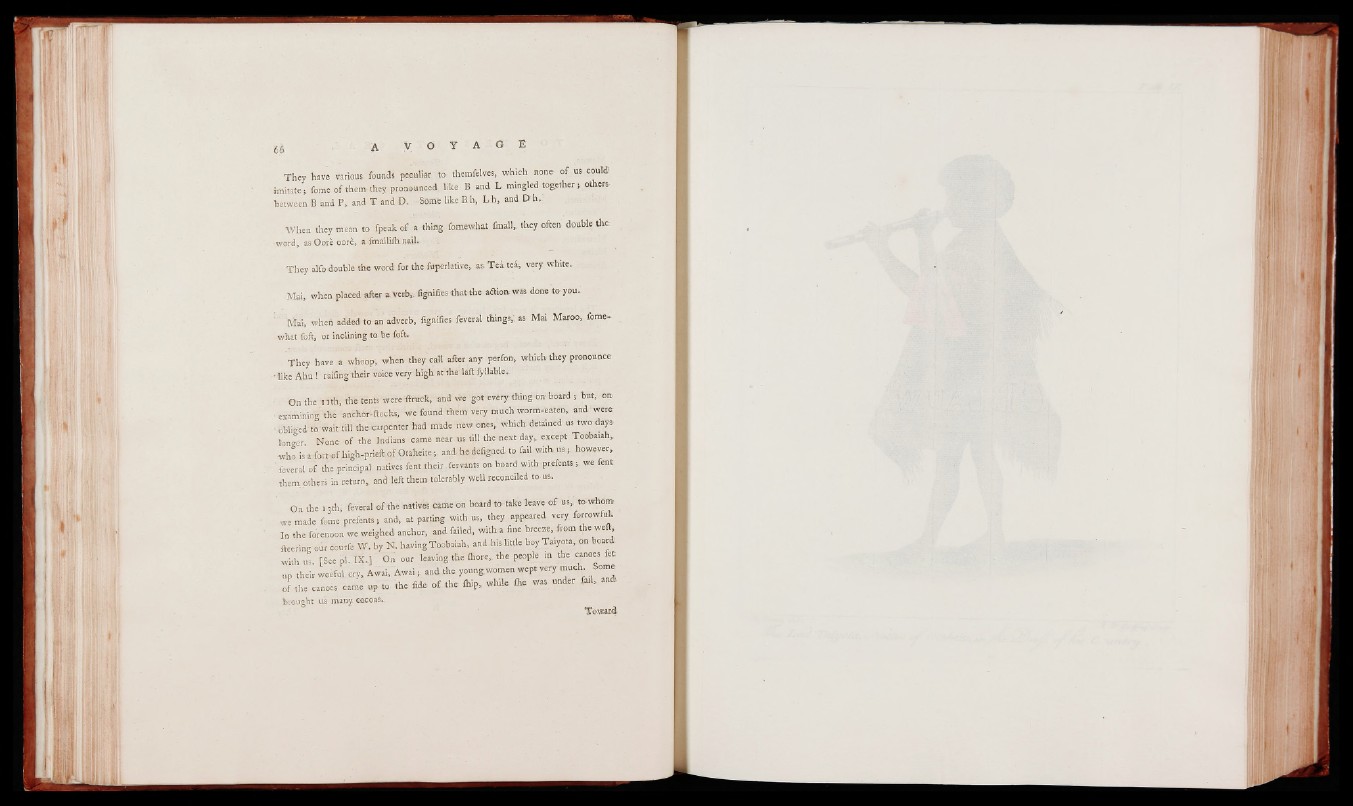
pR
Y
t
ill;
Si 1-Jfi
I f
s i A v O Y A U *
They have various, founds peculiar to themfelves, which none- of us could
imitate ; feme of them- they pronounced like B and L mingled together ; others-
between B and P, and T and D. Some like B h, L h , and D h.)
When they mean to fpeak of -a thing fomewhat final'l* they often double the
•word,, as Oorè oorè, a fmalliih oail.
They alfo double the word for the fuperlative, as. Tea tea, very white.
Mai, when placed after a verb* lignifies that the aflionwas done to you.
' hiai, when added to an adverb, lignifies feveral things* as Mai Maroo, lbme-
what foft, or inclining to be foft.
They have a whoop; when they call after any perfony which they pronounce
•like Ahu! railing their voice very high at the laft fy’labic.
On the n th , the tents w e r e «ruck, and we got every thing on hoard , but, on,
examining‘the anbhor-ftocks, we found them very much worm-Oaten* find‘were
obliged to wait: till the-car-pénter bad made new ones, which detained1 us two days
longer. None of the Indians came near us till the next day* except Toobaiah*
■who, is a-fort-of high-prieft-qf Otaheite* a n d he defigned to fail with us*, however*
‘ feveral of the principal natives fent their fervents on board with prefents * we fent
them; others in return* and left them tolerably well reconciled to ns. .
On the laths feveral of the natives came on board to-take leave o f Us,, towhom
we made fome prefents; and, at parting with-us, they appeared very, fbrrowfuh
In the forenoon we weighed anchor, and failed, witha fine breeae, from the weft*
fleering oor courle W. by N. having Toobaiah, and-his little boy Tatyota, on board
with us. [See pl. IX..] On our leaving the (hore* the people in the canoes fet
up their woeful cry,, Awai* Awai S and the: youngwomen wept very much. Some
of -the canoes 'came up to the fide of. the <hip, while Ihe was, under fail,, and
brought us many cocoas*
Toward